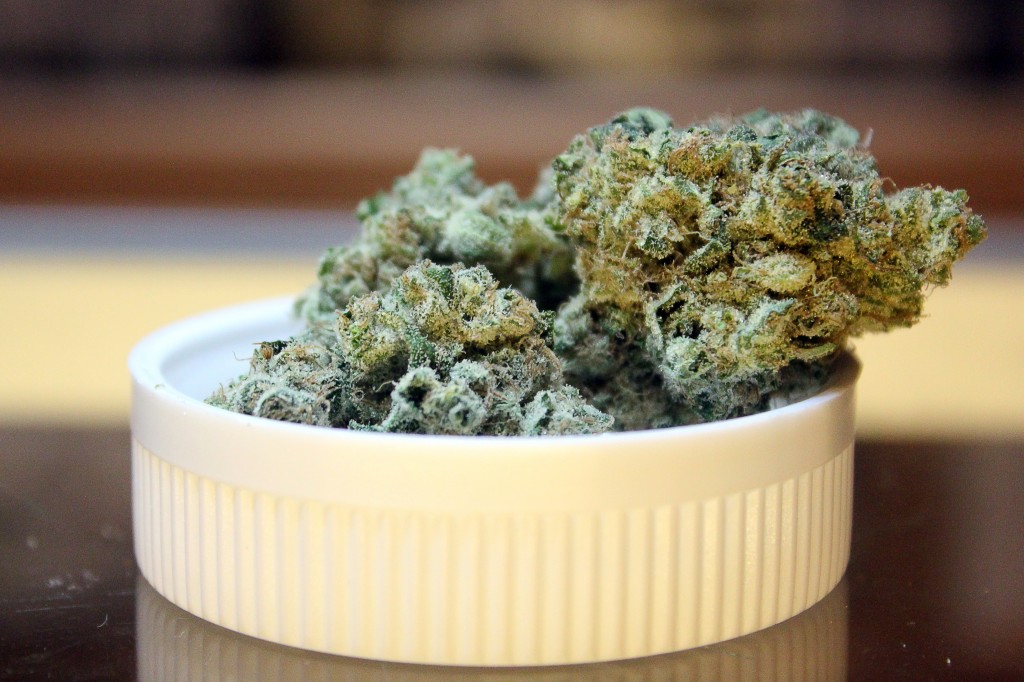
“White Slipper,” a sativa strain, sits on a display case at the Terrapin Care Station. (Kai Casey/CU Independent File)
On Wednesday, Colorado suspended taxation on recreational marijuana for the day. After there was a surplus of tax revenue collected from recreational marijuana sales since its legalization in 2014, the state required the surplus be compensated for with a tax holiday. University of Colorado students reacted to the holiday with a mixture of disapproval and confusion.
“I don’t see the point,” said student Maya Friedli-Schroeder. “If you’re going to make a substantial difference, it should be longer than a day. I don’t know what they were trying to get out of that.”
Apparently this was the approach that ruffled the fewest feathers. According to Richard Gee from Cannabis Consulting Professionals, the tax-free holiday was the best way to cover the difference of the surplus tax revenue generated by marijuana sales.
“If you sell the public on increasing taxes by giving them an estimate of how much the tax revenue will be,” said Gee, “and you raise more than that amount, technically the government is supposed to write checks to all the taxpayers.”
The tax-free holiday replaced that need for individual checks, Gee said. Others disagreed with the whole concept of a tax-holiday in general.
“I think the whole point of legalizing recreational marijuana is to increase the education budget, and that’s where all the taxes are going,” said student Emily Debin. “If there’s no taxation, there’s no money going to education.”
It seems that there isn’t a lot of consensus about where the money is being spent.
“We went from being a state that didn’t have any excess money to a state flush with money,” said Susan Morley, Senior Instructor at the CU Leeds School of Business. “I don’t think they really know what they’re going to do with all that money and I have a feeling they’re going to have to revisit the requirements about what to do with it. My guess is that they’re going to make some changes so they can use every cent of those tax dollars.”
Some students were curious as to why the tax holiday was only for recreational marijuana and not for medical marijuana.
“I think it’s great the state is giving back to the public by not taxing recreational marijuana for a day,” said student Jordan Chandler. “But I think it’s more important for medical patients to get the tax-free benefits.”
This can’t happen, said Gee, with the excise tax on recreational marijuana being different from the taxes placed on medical marijuana.
Colorado’s legal recreational marijuana industry is less than two years old, so the policies regulating it are still being refined.
“I would be surprised if there are any tax holidays like this in the future,” said Morely.
Contact CU Independent News Staff Writer Taryn Parsons at taryn.parsons@colorado.edu.
